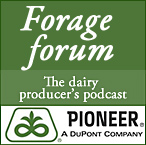Christopher Peake interviews a conventional and organic dairy farmer to debate the differences between the two dairy production methods. His article is titled, “Communicate Green: Conventional vs organic dairy.”
In an article aiming to address consumer questions about dairy, Peake writes, As the debate between conventional and organic milk consumers gets louder, we spoke with two local dairy farmers and gave each the same questions. Two producers were asked questions like: What do you feed your herd? What grasses do they eat when they’re outside? Which medicines do vets give your cows? How does conventional milk differ from organic milk? How do you respond to those who say, “Conventional milk is less healthy than organic milk?”
To read their responses, link to the article at Seacoast Online. As producers, do you get asked these questions often? Are you aware that your customers are wondering about these basic production practices? Are you a transparent resource that is willing to answer these questions? What are your responses to some of these questions?

 The
The  I haven’t had my dinner yet, and this cheese is making my mouth water!
I haven’t had my dinner yet, and this cheese is making my mouth water!  I thought I would highlight another great dairy blog for you to check out this weekend. It’s called, The Scoop, and it’s written by Ashley Messing, a senior dairy management and animal science student at Michigan State University. The Scoop is a blog that describes Ashley’s life in the dairy industry.
I thought I would highlight another great dairy blog for you to check out this weekend. It’s called, The Scoop, and it’s written by Ashley Messing, a senior dairy management and animal science student at Michigan State University. The Scoop is a blog that describes Ashley’s life in the dairy industry. Dairy Markets Week in Review
Dairy Markets Week in Review According to an American Farm Bureau Federation press release, legislation introduced today to prevent a “cow tax” on farmers and ranchers is both “timely and critical.”
According to an American Farm Bureau Federation press release, legislation introduced today to prevent a “cow tax” on farmers and ranchers is both “timely and critical.” Spring
Spring  The
The